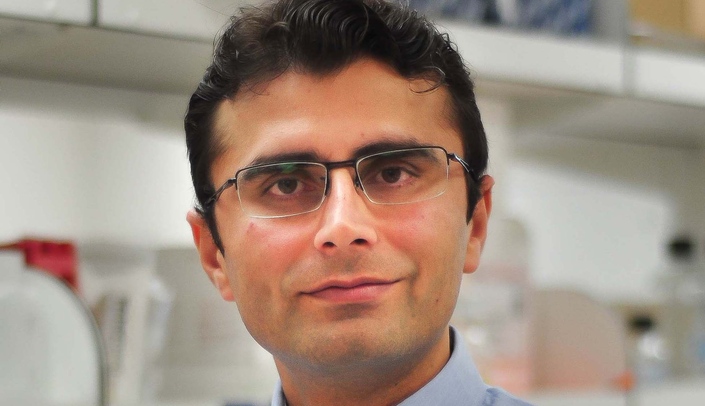University of Nebraska Medical Center researchers have discovered a potential new therapeutic target for pancreatic cancer, detailed in a paper in a recent issue of the journal Gastroenterology.
The team established a new way to target pancreatic cancer cells by developing inhibitors that, when combined with existing chemotherapies, can diminish pancreatic cancer in mouse models. The discovery was a culmination of about seven years of work with collaborators from the Buck Institute for Research on Aging, Cold Spring Harbor Laboratory, Germany, India, China, Italy and Switzerland.
The research was funded primarily by a $2.6 million grant from the National Cancer Institute of the National Institutes of Health and an Italian cancer research grant.
Pancreatic cancer is a lethal malignancy with a five-year survival rate of less than 10%. Pancreatic cancer cells tend to reprogram how they feed themselves and are able to survive and grow under harsh conditions, said Pankaj Singh, PhD, professor in the Eppley Institute for Research in Cancer at UNMC. Dr. Singh is the senior author of the paper.
“Our lab found that deleting the enzyme SIRT5 in pancreatic cancer cells accelerates tumor growth and correlates with poor survival in both pancreatic cancer patients and genetically engineered mouse models,” said Dr. Singh, who also is co-leader of the Cancer Biology Program at the Fred & Pamela Buffett Cancer Center. “The study provides the first evidence in support of activating SIRT5 as a therapeutic strategy.
“The ability to ‘turn on’ SIRT5 in pancreatic cancer cells inhibits tumor growth. Developing drugs that do this is the next step and will help diminish tumors in patients with low SIRT5 expression in the tumors,” Dr. Singh said.
The team used a public database to identify the role of SIRT5 in pancreatic cancer and generated new animal models to study its role in the disease. It also developed various cell line models and tissue-like structures, and it conducted various molecular and biochemical studies. The studies also used human tumor specimens.
Dr. Singh said SIRT5 deletion enhanced the formation of early tumor lesions in mice in response to inflammation and in response to mutations in the KRAS and p53 genes. KRAS belongs to a class of genes known as oncogenes and when mutated have the potential to cause normal cells to become cancerous. The p53 gene stops the formation of tumors.
“While mutations in the KRAS oncogene are the main driver for the disease, how KRAS drives healthy cells to become cancer cells is not fully understood,” he said. “Also, new therapies are very much in need to target the oncogenesis induced by KRAS.”
The study also identified the basis of how pancreatic cancer cells reroute the metabolic dependencies under conditions of nutrient deprivation in the tumors.
Dr. Singh said studies need to be conducted in human patients to evaluate the effectiveness of SIRT5 against pancreatic cancer.
UNMC collaborators included first author Fang Yu, PhD, Audrey Lazenby, MD, and Kamiya Mehla, PhD.
We are Nebraska Medicine and UNMC. Our mission is to lead the world in transforming lives to create a healthy future for all individuals and communities through premier educational programs, innovative research and extraordinary patient care.
Twitter | Facebook | Instagram | YouTube | Flickr
UNMC researchers discover new, potential target for pancreatic cancer
- Written by Victoria Cerino
- Published Jul 28, 2021

Media Contact
Vicky Cerino
UNMC Strategic Communications
(402) 559-5190
(402) 559-4353
vcerino@unmc.edu